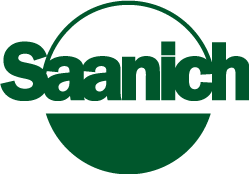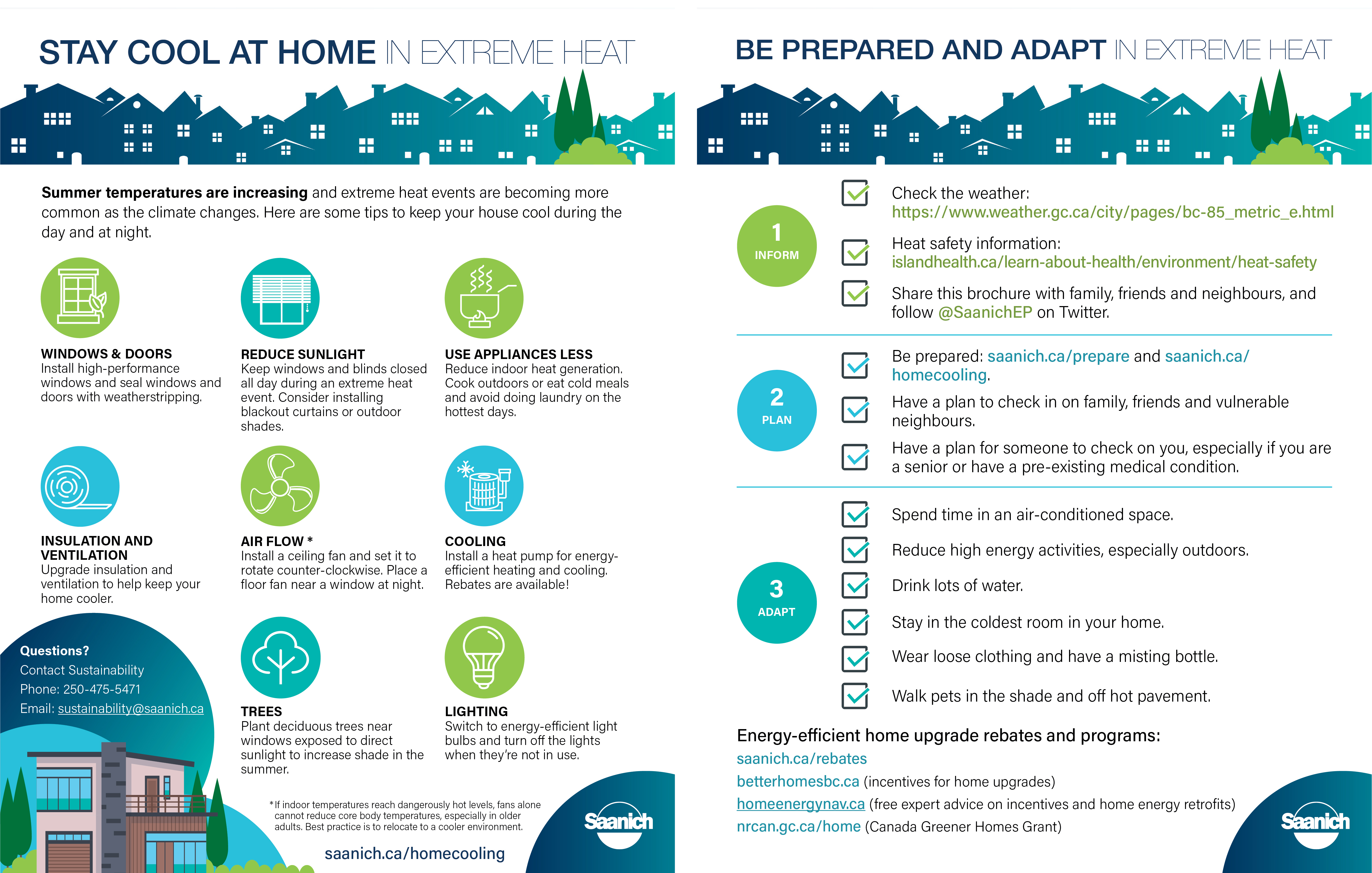This page provides tips and information on home-efficiency upgrades to help cool your home and improve indoor air quality during extreme heat and smoke events. For emergency preparedness information on extreme heat, visit the Saanich Emergency Program webpage and follow @saanichEP on Twitter for local emergency information.
Average summer temperatures are increasing and extreme heat events and air quality alerts, due to wildfire smoke, are becoming more common as the climate changes. (See 10 tips for coping with wildfire-smoke.)
View our tips on How to stay cool at home in extreme heat and review the information below. You can also visit CleanBC web pages for more tips on keeping your home cool in the summer and information on rebates for energy-efficient home upgrades. Also check out low cost solutions for renters.
Reduce indoor sources of heat
To reduce indoor heat generation during extreme heat events, avoid cooking indoors or doing laundry on the hottest days of the year or the hottest part of the day. To save energy and keep your home cool on laundry days, wash your clothes in cold water and let them line dry. Minimize the use of a dishwasher and switch to energy-efficient light bulbs.
Keep heat and smoke out of your home
Providing outside shading, especially on the southern or western sides of your home, can help cool your home inside. Outdoor shading options include installing external window shades, awnings or overhangs and planting trees in front of windows. Consider installing blackout curtains or other reflective material to keep out the sun’s heat.
Choose efficient air conditioning
Installing a heat pump is the recommended option for single-family home upgrades. Heat pumps can be up to 50% more energy efficient than a typical window air-conditioning unit.
If a heat pump isn’t an option, Natural Resources Canada offers advice on air conditioning, including free-standing portable units.
For multi-unit buildings, learn more about heat pumps for stratas in this four-minute video, or check out other helpful resources and webinar recordings (January 8, 2022 webinar) shared by the Vancouver Island Strata Owners Association.
Improve air quality
To improve indoor air quality, refrain from burning candles, incense and smoking inside your home.
Did you know that heat pumps, in addition to heating and cooling your home, also provide air filtration? Visit CleanBC for more information. A heat pump is a great climate adaptation measure to ensure your home is adapted to warmer and smokier summers.
If you have a central heating system, you can run your furnace/system on fan mode to benefit from recirculated air filtration. Ensure your furnace filters are regularly maintained and have a high enough rating for your needs. If your thermostat doesn’t have a fan setting, speak with a professional to set up the fan mode.
Purchasing an air purifier is another option to improve indoor air quality. Visit Natural Resources Canada for more information on air purifiers.


